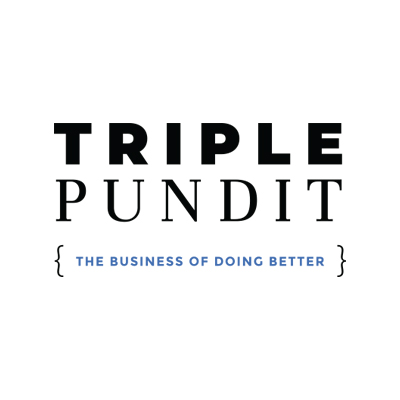
As many as one in three U.S. citizens has a criminal record – which means countless people will face a lifelong struggle finding meaningful employment. For many reasons, including historically low unemployment and growing fatigue with the U.S. criminal justice system, interest in second-chance hiring is growing.
Nevertheless, many businesses are still reluctant to hire the formerly incarcerated, despite the success of “ban the box” legislation (laws preventing employers from asking about one’s criminal history) across the country.
One organization that has shown leadership on this challenge is the Society for Human Resource Management (SHRM), which boasts over 300,000 members across 165 nations. In recent years, this organization, the world’s largest human resources membership association, has become a font of best practices, as well as myth-busting, on second-chance hiring.
As one owner of a staffing agency noted on SHRM’s blog earlier this year, “I have noticed that my best employees are the most unlikely and most overlooked: Those who lost the most.”
SHRM has found a proactive, resourceful and vocal ally in Koch Industries, which by most accounts employs 130,000 employees worldwide and has annual revenues of over $110 billion.
This story about second-chance hiring got its start in Queens
One of Koch Industries’ most passionate and committed advocates for second-chance hiring is Jenny Kim, Deputy General Counsel and Vice President of Public Policy at Koch.
Kim’s focus on second-chance hiring hearkens back to her upbringing in the Woodside neighborhood of Queens, New York City. “In my apartment building there were families not that different from us, but I think some of their sons probably had a hard time adjusting to the world that was constantly changing around them,” she said during a recent interview with TriplePundit.
The apartment building in which Kim’s family lived was one of mixed races and ethnicities, but in reflecting back to her childhood, she realized that in the end, all of the families had more similarities than differences. “Some of my peers ended up working at Bloomingdale’s or Macy’s. Others, well, their life took them in another direction – in the worst cases, sadly, Riker’s Island,” she recalled. “My parents are immigrants from South Korea, so they had a very sort of black and white view of the world. If you broke the law, you broke the law. That's it. So, they would say, we can't talk to them.”
But early on, Kim took a different view of her neighbors. “[My parents] would say, ‘Don't make eye contact with them,’ but I did anyway,” she said. “I realized my neighbors weren’t necessarily ‘bad’ people; after all, they sometimes helped my mom carry groceries to our apartment.”
Fast forward to years later, and Kim eventually graduated from New York University, and later, Boston College Law School. Those memories of her neighbors, however, stayed with her. “I think they were lost, and I think they had a lot of dreams and aspirations. But often they had no father figure in the home. Usually their moms were raising those young men by themselves,” she said.
From compliance to advocacy
Kim’s career eventually landed at Koch Industries, where at first, she worked on political law compliance. She then found herself on a project of figuring out how to structure and magnify the company’s criminal justice work.
The recollections of her neighbors stayed with Kim as this “project” ended up becoming a passion – one she articulated with relentless energy during her recent talk with 3p. “As you get immersed in this work, you start to peel back the layers of the onion,” she explained. “You get tired of reading about what's theoretically wrong with the system. You start meeting people. And that led to the first real meeting with a human being who had a criminal record that I got to know.”
Note that Kim described this man as a “human being” – one who told Kim that he could not go join his son on an upcoming school trip due to his criminal record. “That bothered me, because he clearly was trying to rebuild his life.”
To Kim, this human being, this father, deserved to be more than to be described as an “ex con” or other terms that are in our daily vernacular, largely formed by the media and popular culture. Kim didn’t see this person as someone who “did time,” but as a vibrant and talented human being. “I also remember how artistic and articulate he was; I can't even draw a straight line with a ruler,” she quipped.
The barriers to rebuilding lives
Kim explained how criminal records stay with people – along with at least other 46,000 additional penalties resulting from convictions that people will long confront as they try to become integrated once again within society. Those barriers are the result of what many estimates suggest are up to the 5,000 criminal statues and up to 300,000 criminal regulations that are on the books across the U.S.
Meanwhile, of the 2.2 million Americans who are in prison, more than nine out of 10 of them will eventually be released, or about 650,000 to 700,000 annually.
Kim’s drive, passion and learnings she gained by visiting prisons across the country helped lead to the partnership Koch Industries launched with SHRM earlier this year. The Getting Talent Back to Work initiative not only encourages companies and trade associations to embrace second-chance hiring, but offers them resources that can help them evaluate individuals who have the qualifications and talent – but also happen to have a criminal record.
Partnerships help push second-chance hiring forward
In addition to SHRM, Koch Industries partners with several organizations in its push to have second-chance hiring become the norm, not exception. In Wichita, home to the company’s headquarters, Koch partners with Rise Up for Youth, a high school mentoring program that works with teens by providing them the tools they need to manage life’s difficulties and eventually, succeed in adulthood.
According to Kim, employees help support this partnership by spending much time volunteering with the organization; many employees, executives and spouses have also been on Rise Up for Youth’s board. “What we’re doing is not just about financial support; it's also genuine community support,” added Kim.
Nationwide, Koch also works with organizations including Washington, D.C.-based Center for Advancing Opportunity, a research and education initiative that counts the Thurgood Marshall College Fund (TMCF) among its supporters. The focus of the center’s work includes supporting the research of scholars at Historically Black Colleges and Universities (HCBU) who specialize in education, entrepreneurship and criminal justice. “The TMCF-Koch partnership is a wonderful example of vision and impact working together to advance opportunity in the public and private sectors of life with HBCU scholars and students as important voices in this important endeavor,” said Gerard Robinson, the organization’s executive director.
Tomorrow, TriplePundit will feature Jenny Kim’s discussion of the business and moral case for second-chance hiring.
Don’t forget: Later this month, we’ll be hosting 3BL Forum: Brands Taking Stands – What's Next, October 29-30, at MGM National Harbor, just outside Washington, D.C. Jenny Kim of Koch Industries will be onstage the afternoon of the 29th as we discuss how the private sector can help support prison reform and the hiring of formerly incarcerated people.
We're pleased to offer 3p readers a 25 percent discount on attending the Forum. Please register by going to the 3BL Forum website and use this discount code when prompted: NEWS2019BRANDS.
Image credit: Koch Industries

TriplePundit editors offer news and insights on sustainable business.














